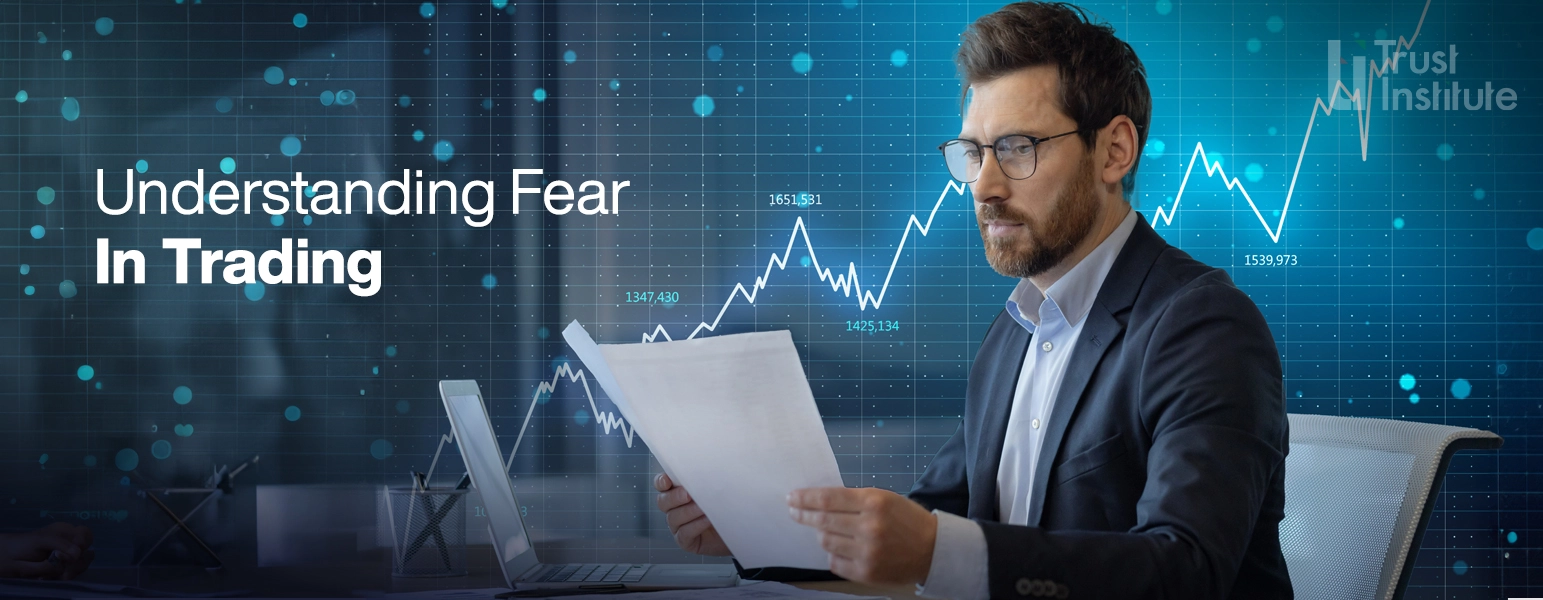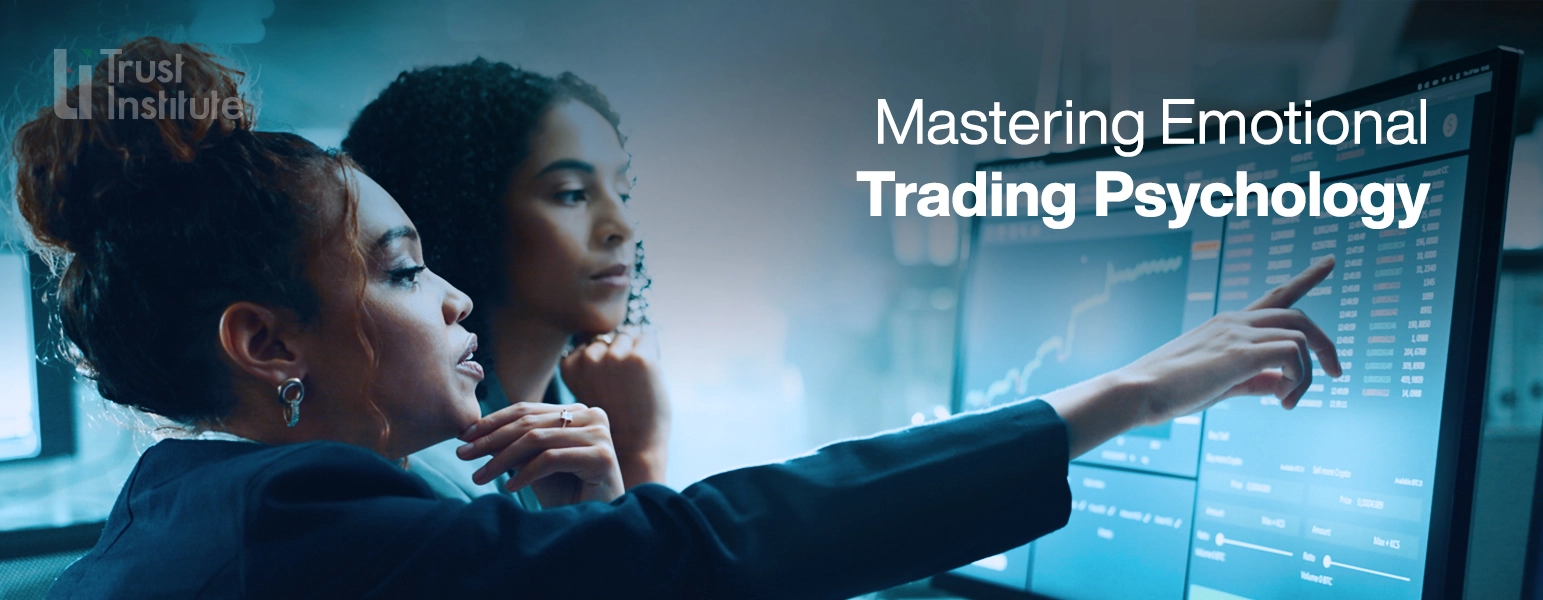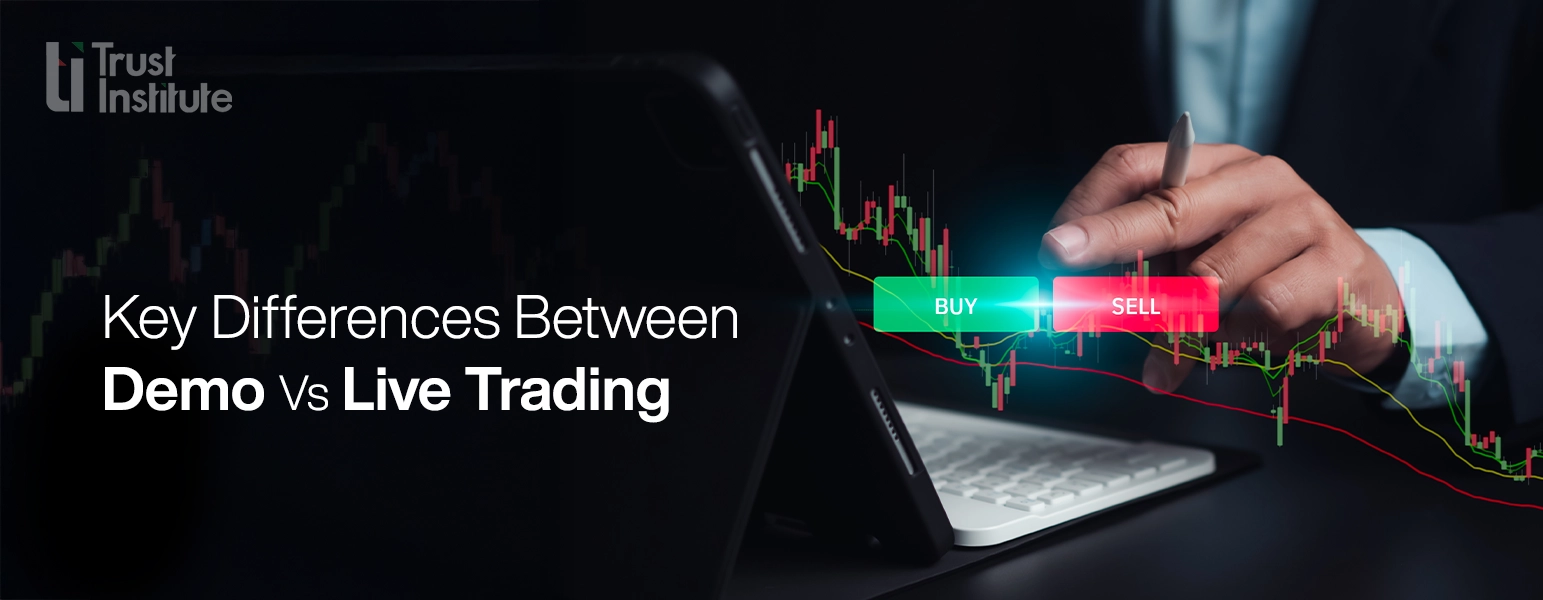Explore the world of financial trading and
gain the knowledge and tools for success with our expertly
written articles and blogs.

Fear and FOMO: The 2 Emotions That Destroy Most Traders

In 2021, popular trader Ricky Gutierrez admitted to losing money on GameStop (GME) after jumping in too late—driven not by analysis, but by FOMO (Fear of Missing Out). Despite his experience, emotions clouded his judgment. He later confessed that fear of missing out, followed by the fear of further losses, disrupted his trading flow.
This real incident proves that emotional control is just as important as strategy. Fear and FOMO don’t just hit beginners—they take down the best. And if left unchecked, they can ruin any trading journey, no matter how strong the strategy.
Understanding Fear in Trading

Fear manifests in many ways—fear of losing money, fear of being wrong, or fear of market volatility. This emotion can paralyze a trader, causing them to miss opportunities or exit trades prematurely. One common psychological mistake made by traders is hesitating to enter a trade because of recent losses. This leads to inaction or poor decisions based on past outcomes rather than current market conditions.
The key to handling fear lies in cultivating a more positive mindset for effective trading. This includes accepting that losses are part of the game and that no trader wins 100% of the time. A solid fear and greed trading strategy helps create structure and removes the randomness in your decision-making process.
The Danger of FOMO in Trading
Fear of missing out in trading can be equally damaging. Traders often jump into trades impulsively because a stock or currency is “taking off,” hoping to ride the wave. This behaviour is usually driven by social media hype or market noise. Unfortunately, such trades are rarely based on sound technical or fundamental analysis.
To combat this, it’s vital to understand how to avoid FOMO trading. Set clear entry and exit rules before placing any trade. Have a plan, and stick to it—even if the market seems to be moving without you. Missing one opportunity does not mean you’ve missed the only good trade. The market always offers new chances for those who are patient and disciplined.
Mastering Emotional Trading Psychology

Emotional trading psychology strategies are all about staying in control. The first step is self-awareness—recognise when your emotions are taking over. Keep a trading journal to note not only the technical side of your trades but also how you were feeling at the time. This reflection can help you identify patterns and triggers that lead to poor decisions.
Trading psychology for beginners should focus on building habits that promote clarity and control. This includes following a consistent routine, practicing mindfulness, and using risk management tools like stop-loss orders to reduce emotional stress during trades.
Practical Tips for Managing Emotions While Day Trading
Day trading is especially challenging because of its speed and volatility. Here’s how to practice managing emotions while day trading:
- Use checklists before every trade to ensure decisions are rule-based.
- Limit screen time to prevent emotional burnout.
- Take breaks during trading sessions to reset your mindset.
- Set realistic goals and avoid chasing profits.
These practices contribute to developing emotional discipline in trading, a skill that separates successful traders from impulsive ones.
Building a Resilient Mindset
Ultimately, mastering your emotions is about building mental resilience. Whether you’re a novice or a seasoned trader, ongoing work on your emotional trading psychology strategies is essential. Surround yourself with the right learning resources, seek mentorship, and stay committed to growth.
Fear and FOMO may always exist in some form, but with the right tools and mindset, they don’t have to control your trades. Learn how to control trading emotions, stay grounded, and let strategy—not emotion—lead your way to consistent success.
All blogs
©TRUST TRAINING AND DEVELOPMENT INSTITUTE 2026
Disclaimer: Trust Institute is a KHDA-licensed educational institution based in Dubai, UAE. All training programs, materials, and content offered through our website and in-person sessions are provided strictly for educational purposes. We do not offer financial or investment advice, and we do not engage in or promote any trading activity.
Our courses are designed to increase knowledge and understanding of financial markets. Trust Institute is not a brokerage firm, does not manage client funds, and does not participate in any trading on behalf of its students.
Participation in financial markets, including Forex trading, involves significant risk and may not be suitable for everyone. Individuals are encouraged to conduct their own research and consult with licensed financial professionals before making any financial decisions.
By accessing our content or enrolling in our courses, you acknowledge and accept that Trust Institute is not liable for any financial outcomes resulting from the application of educational material shared. You agree that your use of this information is at your own discretion and responsibility.
Trust Institute is fully licensed and regulated by the Knowledge and Human Development Authority (KHDA) in Dubai, United Arab Emirates.






















































